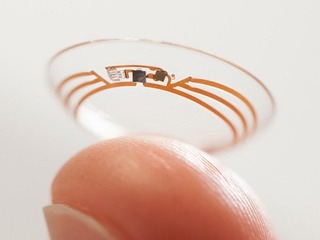The FDA outlines draft guidance on AI for medical devices
The agency also published draft guidance on the use of AI in drug development
Read more...
I've sometimes wondered: if someone who had never used the Internet before came up to you and asked you what Google was, how would you answer? You'd probably say it was a search engine. But its also the biggest video player on the Web, a health company, a car company, a mobile user interface, a browser and a million other things. It is doing self driving cars, smart contact lenses, and all sorts of crazy things.
Facebook, too, is a company with its fingers in a number of different pies, including artificial intelligence and virtual reality. However Facebook CEO Mark Zuckerberg sees a big difference between the two, both positive and negative, and its a contrast that he highlighted in a recent interview with The Fast Company.
Being more focused is a positive for Facebook since it allows the company to focus more on its vision, which Zuckerberg says is "to give everyone in the world the power to share and make the world more open and connected."
"There are different ways to do innovation," he said. "You can plant a lot of seeds, not be committed to any particular one of them, but just see what grows. And this really isn’t how we’ve approached this. We go mission-first, then focus on the pieces we need and go deep on them, and be committed to them."
Google, for instance, was doing so many things, that earlier this year it restructured, putting all of its varying and wide-ranging products under a new umbrella called Alphabet. The name even implies that it does everything from A to Z.
There is a downside to the kind of tunnel vision that Facebook employs, however: it does not allow for the same type of risk that a company like Alphabet can take. If one of Alphabet's projects, lets say the smart contact lens, fails, then that is not catastrophic to the company. If a project at Facebook fails, on the other hand, it ripples throughout everything the company is trying to do.
"These things can’t fail. We need to get them to work in order to achieve the mission," Zuckerberg said.
One of the company's biggest failures was Home, a user interface for Android introduced in 2013, which was meant to make phone more people-centric, rather than revolving around apps. This meant prominently displaying information from Facebook, including status updates and new pictures, onto the phone’s lockscreen and homepage. It was as close as we will likely ever get to a Facebook phone, and people rejected it.
"One of my big regrets is that Facebook hasn’t had a major chance to shape the mobile operating system ecosystem," Zuckerberg said in the interview.
That failure is also what has driven the company's push into virtual reality, which began with it's $2 billion acquisition of Oculus last year. That has so far manifested itself into a big push into 360-degree immersive video.
Once Oculus starts shipping its headsets, Zuckerberg believes that it will be the next big thing, and that Facebook will be on the ground floor.
"If you look at how people spend time on all computing platforms, whether it’s phones or desktops before that, about 40% is spent on some kind of communications and media," he said.
"Over the long term, when [Oculus] becomes a more mature platform, I would bet that it’s going to be that same 40% of the time spent doing social interactions and things like that. And that’s what we know. That’s what we can do."
In addition to virtual reality, Oculus is also said to be working on augmented reality.
VR is closed and fully immersive, while AR is open and partly immersive. Where VR puts users inside virtual worlds, immersing them, AR puts virtual things into users’ real worlds, augmenting them. Basically VR is something you wear on your face, like Oculus VR, while AR is like wearing something along the lines of Google Glass, where you will still be able to walk around and see the real world around you.
The two spaces, together, are expected to be worth $150 million by 2020, up from what looks to be around $5 billion in 2016.
If Oculus can dominate both segments, then Zuckerberg believes that the Rift "could be the last electronics device that a lot of people need to buy."
Shoutout to Business Insider for first noticing this.
(Image source: techcrunch.com)
The agency also published draft guidance on the use of AI in drug development
Read more...The biggest focus areas for AI investing are healthcare and biotech
Read more...It will complete and submit forms, and integrate with state benefit systems
Read more...
